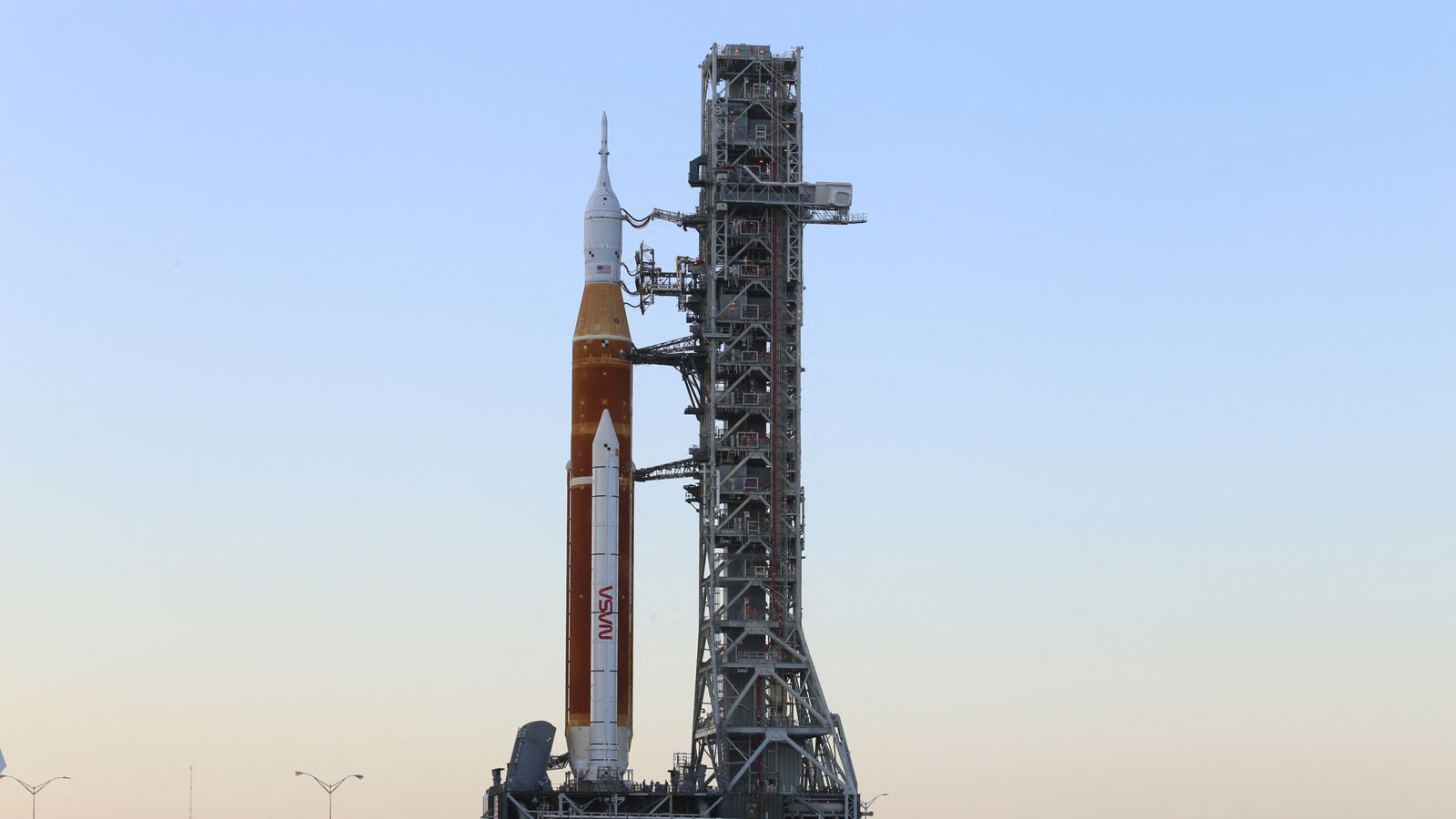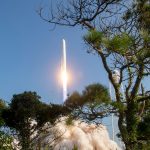NASA has cancelled an important “wet test” of the Artemis 1 Space Launch System (SLS) due to safety concerns with its $1bn launch platform.
The wet test for the next-generation moon rocket was essentially a dress rehearsal, featuring everything necessary for preparing an actual launch – including filling it with fuel – without actually taking off.
However, an issue with the launch platform meant that a critical system – which uses fans to keep the tower pressurised and “keep out hazardous gases” – failed, forcing the countdown to be cancelled.
In a statement published late on Sunday, NASA said its teams have “decided to scrub tanking operations” as a result, and said the earliest opportunity to run the test again would be Monday.
It is the latest setback to befall NASA’s plans, which would initially have seen the space agency complete a moon landing in 2024.
The wet test began on 1 April, but a burst of horrid Florida weather – including lightning striking the towers around the launchpad – prompted some concern from onlookers.
NASA said the lightning wasn’t much to worry about, and its protection systems “performed extremely well” and kept both the SLS and the Orion spacecraft safe.
Ukraine war: Russia to halt cooperation on International Space Station over ‘illegal’ sanctions
Scientists discover what might be the farthest possible star ever seen
Space-grown lettuce could help astronauts avoid bone loss on three-year mission to Mars
The Artemis 1 mission is scheduled for this summer and will take an uncrewed Orion spacecraft around the moon ahead of an eventual manned mission to the lunar surface.
Last year, NASA’s administrator Bill Nelson said that the space agency’s planned moon landings will likely take place “no earlier than 2025” while warning about Washington slipping behind Beijing.
He said that competition with China, which is building a new space station in low-Earth orbit and is also working towards a manned moon landing, made it imperative the US continues to press on.
NASA’s ambitious timeline plagued by problems
It was the first time that a delay affecting the Artemis programme – which aimed to land the first woman and the next man on the moon by 2024 – has been officially confirmed, despite numerous warnings.
The ambitious timeline of returning to the moon by 2024 was announced by the Donald Trump administration in 2019 and had been met with scepticism even before the COVID pandemic.
NASA’s then-administrator Jim Bridenstine confirmed that the programme would be named Artemis after the mythological sister of Apollo, the first moon missions’ namesake.
Follow the Daily podcast on Apple Podcasts, Google Podcasts, Spotify, Spreaker
But a series of problems have caused delays, including several lawsuits from Jeff Bezos, who was aggrieved that his private spaceflight company Blue Origin was turned down for a $2.9bn (£2.2bn) contract awarded to Elon Musk’s business SpaceX.
Last year, Bill Nelson confirmed that the goal remained 2024, but complained that Blue Origin’s protest against the initial awarding of the contract had held up progress.
NASA’s inspector general had also warned that the agency faced “significant challenges” in producing two flight-ready spacesuits by November 2024.
“Given these anticipated delays in spacesuit development, a lunar landing in late 2024 as NASA currently plans is not feasible. The suits would not be ready for flight until April 2025 at the earliest,” the inspector general said.
Fortunately, Blue Origin’s claim was dismissed shortly after, enabling NASA and SpaceX to continue talking.






















